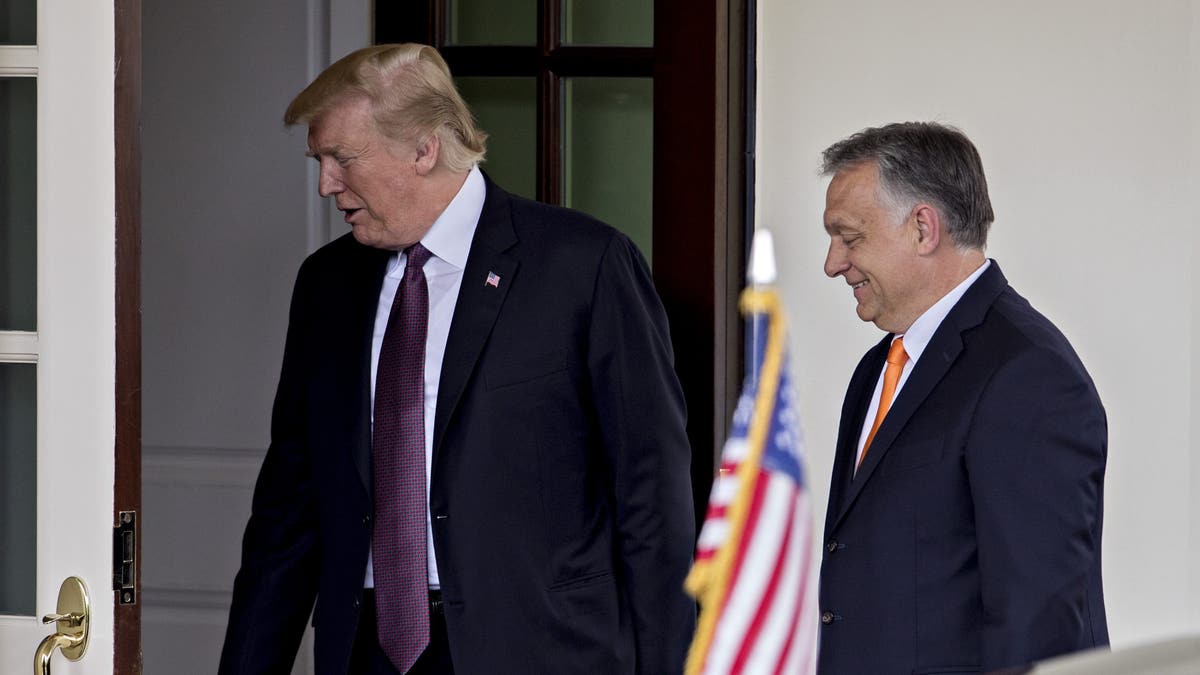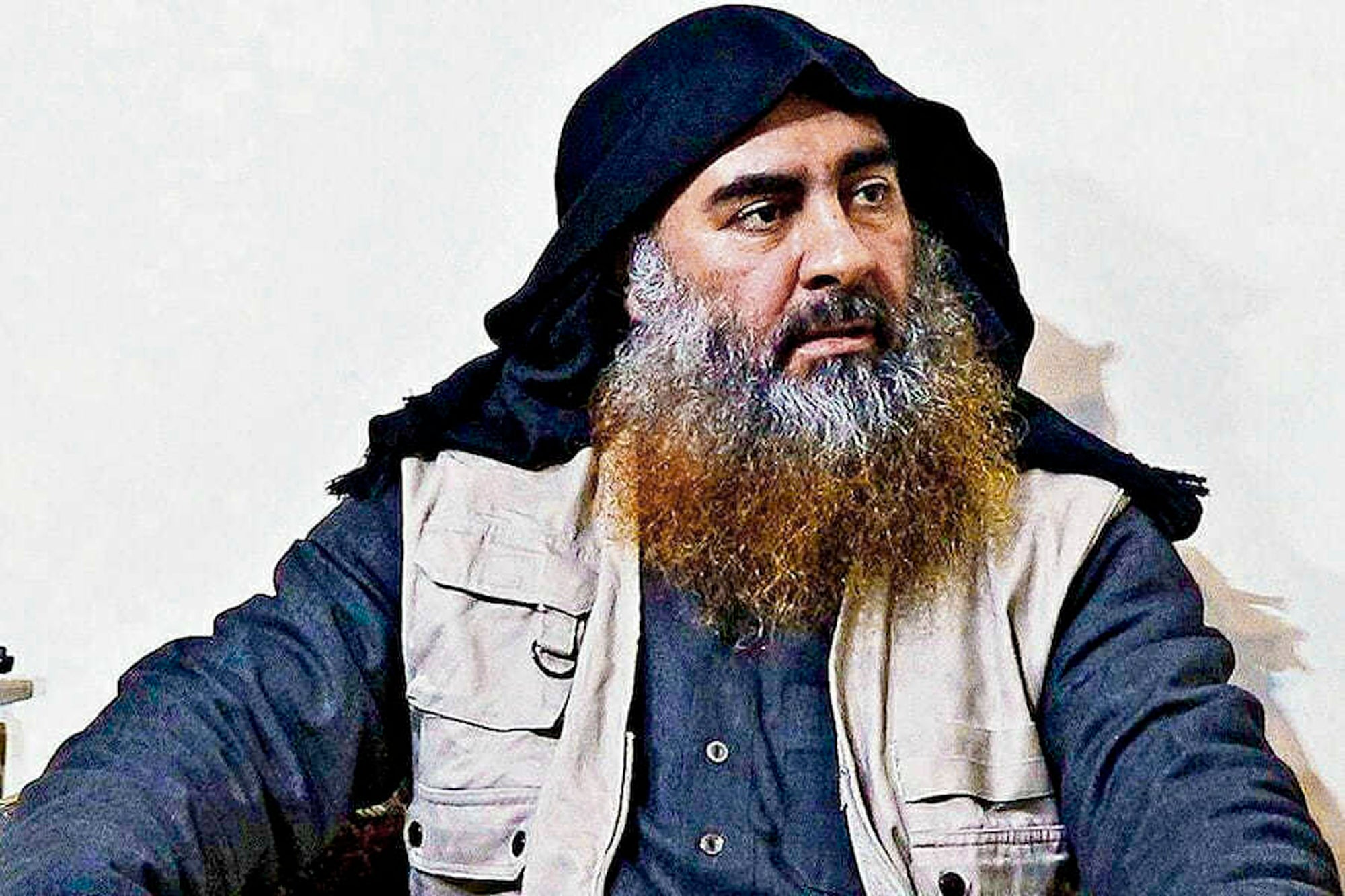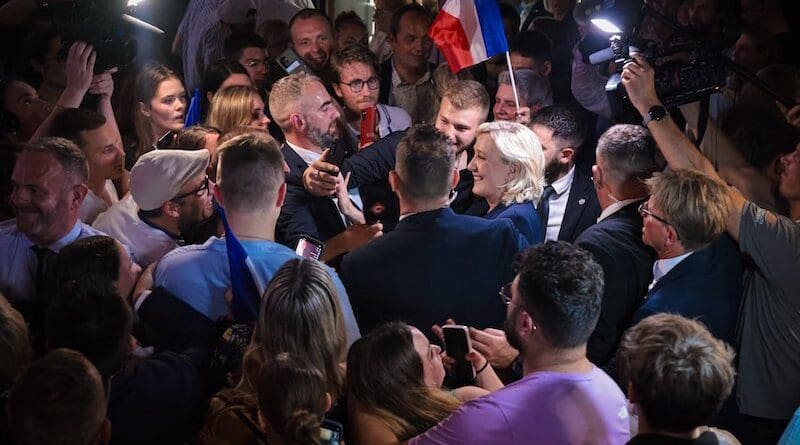Hungarian Prime Minister Viktor Orban has long admired Donald Trump
By Peter Aitken Fox News
Published July 11, 2024
Hungarian Prime Minister Viktor Orban departed the NATO summit in Washington, D.C., on Thursday to meet with former President Trump in Florida, a source familiar with the meeting told Fox News Digital.
The New York Times first broke the story, citing a Trump campaign official and a person close to the former president. The report did not indicate what the pair would discuss at this impromptu meeting, but Orban has crisscrossed the globe over the past week after assuming the role as president of the European Union.
Orban arrived in the U.S. this week to attend the multi-day NATO summit, which celebrates the 75th anniversary of the organization's founding and occurs at a time when members remain concerned about Russia's ongoing invasion of Ukraine and what the future holds for the broader European Union.
Hungary’s presidency will last six months as part of a rotating leadership scheme for the bloc and does not provide much actual power, but Orban wasted no time in using that office to start holding discussions with Ukrainian President Volodymyr Zelenskyy, Russian President Vladimir Putin and Chinese President Xi Jinping before his meeting with Trump.

Prime Minister of Hungary Viktor Orban, left and Ukraine President Volodymyr Zelenskyi shake hands during a press conference in in Kyiv, Ukraine, on July 2. (Viktor Kovalchuk/Global Images Ukraine via Getty Images)
Orban has long admired Trump, going so far as to invoke the former president with a quip that Hungary would "make Europe great again," and Trump met with Orban at Mar-a-Lago in Florida in March when trying to court foreign policy in the U.S.
During an interview with German journalist and author Paul Ronzheimer, Orban said that there is a "very, very high chance that the next American president will be not the same president who is today," and he refused to be drawn on questions about President Biden’s fitness for office.
The rest of Europe has remained less than enamored with Orban, though, especially in light of his foreign visit blitz in the past 10 days. An EU diplomat confirmed to Fox News Digital that a majority of member states already have considerably lowered the level of participation in the informal council meetings that will be held in Hungary during the presidency term.

President Trump, left, and Viktor Orban, Hungary's prime minister, walk in to the West Wing of the White House in Washington, D.C., on May 13, 2019. (Andrew Harrer/Bloomberg via Getty Images)
In some capitals, also, officials have discussed how to use EU treaties to limit Orban’s impact. The diplomat argued that "EU institutions should not have fallen into Orban’s trap in the first place, and Hungary should not have been allowed to assume the role of the presidency."
"The EU legislation shall be used to protect the Union and the unity, not the imaginary idea of imagined unity," the diplomat said.
Orban’s visit to Russia shocked many of his peers, leading European Union Foreign Policy chief Josep Borrell to rush out a statement stressing that Orban has no mandate from the union in discussions with foreign leaders and that he is "not representing the EU in any form" during the visits.

Russia's President Vladimir Putin, right, meets with Hungary's Prime Minister Viktor Orban at the Kremlin in Moscow on Friday. (Valery Sharifulin/Pool/AFP via Getty Images)
Finnish Prime Minister Petteri Orpo described Orban’s visit to Putin as "disturbing" news, writing on the social media platform X that the visit shows "disregard for the duties of the EU presidency and undermines interests of the European Union."
Lithuanian Foreign Minister Gabrielius Landsbergis wrote on X that "Mr. Orban might be abusing the position of the EU presidency, but what he is certainly not doing is representing either NATO or the EU."
"He does not speak for my country or any country except his own," Landsbergis stressed.
A spokesman for the Trump campaign did not respond to a Fox News Digital request for comment by the time of publication.
U.S., NATO Allies Criticize Orban Amid Reports Of Trump Meeting

WASHINGTON -- The United States and NATO allies criticized Viktor Orban’s secret meeting with Russian President Vladimir Putin earlier this month, as the Hungarian prime minister prepared to travel after the NATO summit to visit with the presumptive Republican nominee in the upcoming U.S. presidential election, Donald Trump.
Orban's unexpected visit to Russia, which in February 2022 launched an all-out invasion of Ukraine that NATO has opposed, was seen as a rogue move by the leader of a NATO country.
Orban's opposition to Ukraine's NATO bid has been watched closely during the summit, but allies said on July 11 that they did not see it denting Kyiv's eventual alliance membership.
The Hungarian leader, who took over the six-month rotating EU Presidency at the start of July, made a secret trip to Moscow to discuss with Putin an end to Russia's invasion of Ukraine without informing the bloc or NATO allies. The visit came on the eve of the July 9-11 NATO summit in Washington hosted by U.S. President Joe Biden.
“The U.S. position, the Biden administration position is: Nothing about Ukraine without Ukraine. So whatever adventurism is being undertaken without Ukrainians' consent or support is not something that's consistent with our policy or the policy of the United States,” Biden’s national-security adviser, Jake Sullivan, told reporters July 11 on the sidelines of the summit.
Lithuanian Foreign Minister Gabrielius Landsbergis criticized Orban’s visit to Moscow, telling reporters at the summit on July 11 that the Hungarian leader does not represent the opinion of the European Union or NATO. French President Emmanuel Macron and German Chancellor Olah Scholz also expressed frustration with Orban. Macron said it was legitimate for Orban to travel to Russia as the Hungarian prime minister, but not on behalf of the European Union.
Orban, Landsbergis, Macron and Scholz were among the leaders and top officials from all 32 NATO countries taking part in the annual summit, where the main topic of discussion was military aid for Ukraine.
On July 10, Orban said he would not sign on to the so-called Ukraine Compact, a shared pledge among more than 20 NATO to support Ukraine both now and for the long-term.
In a video statement posted to his X account, the Hungarian prime minister said that NATO was "behaving more and more like a war organization," citing the alliance's military support for Ukraine.
Orban is reportedly flying to Florida after the summit to meet with Trump. The Republican contender has claimed that, should he win the election, he would negotiate a deal between Ukraine and Russia before his January 2025 inauguration. He has not given any details about his alleged peace plan.
The Hungarian leader, who recently met Trump in Florida in March, has made clear that he backs the Republican candidate in the 2024 election.
The possible return of Trump to the presidency has partially overshadowed the 2024 summit. During his four years in the presidency from 2017 to 2021, Trump repeatedly criticized NATO members for their failure to meet the defense spending target of 2 percent of gross domestic product (GDP) and even raised the idea of pulling the United States out of the alliance.
During a campaign rally on July 10, Trump took pride in having grilled NATO members and spoke of his first days in office in 2017.
“I didn’t know what the hell NATO was too much before. But it didn’t take me long to figure it out -- like about two minutes. And the first thing I figured out was they were not paying. We were paying. We were paying almost fully for NATO. And I said that’s unfair,” he said.
Last month during a podcast interview, Trump blamed the war on Ukraine’s possible NATO membership, raising concerns that he may block the country from joining the alliance as part of a peace deal.
Hungary has also raised doubts about Ukraine's membership in the alliance, saying it risks open conflict with Russia.
"Ukraine's admission wouldn't strengthen but weaken the alliance's unity, as there are completely different viewpoints on their membership," Hungarian Foreign Minister Peter Szijjarto said on July 11.
In the communique reached during the summit, NATO members said that Ukraine’s path into NATO was “irreversible.” When asked about the potential Orban-Trump meeting, outgoing NATO Secretary-General Jens Stoltenberg said it "doesn't undermine or reduce the importance of what we have agreed" at the summit.
Stoltenberg also said he did not think a change in leadership in Washington would result in the United States leaving the alliance, especially as the threat from China grows.
"The reality is that NATO makes the United States stronger and safer, and this is a strong argument for the United States to continue to support and remain a loyal and committed NATO ally," Stoltenberg said.
The NATO chief also said that Trump's biggest complaint -- that of allies' failure to meet defense spending targets -- has been significantly addressed, with 23 members now spending 2 percent or more of GDP. Just 9 members were at the target when Trump left office.











